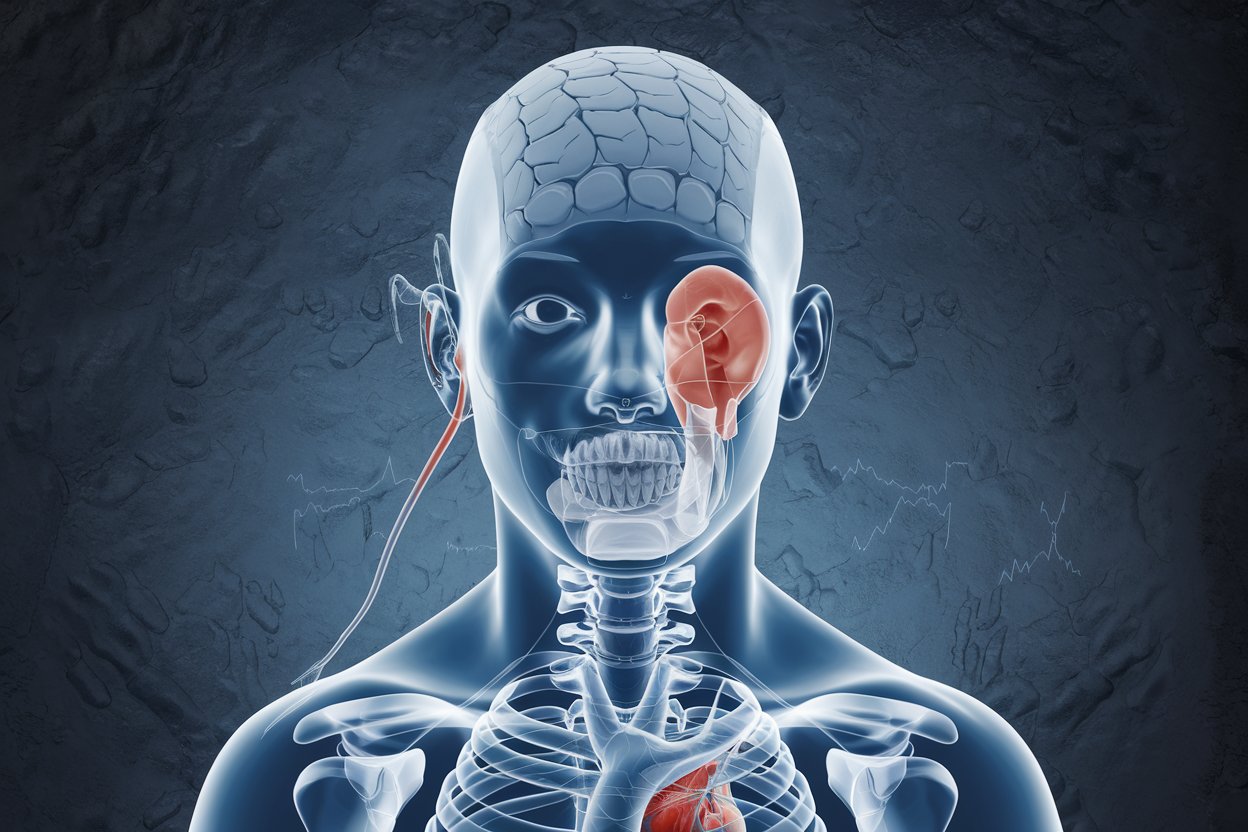
Mitral Regurgitation Deafness Skeletal Anomalies is a rare genetic disorder that affects multiple systems in the body. This condition can cause heart problems, hearing loss, and skeletal abnormalities. Mitral regurgitation refers to the backflow of blood in the heart due to improper closure of the mitral valve. Deafness in this context usually means a significant hearing impairment that can impact daily life. Skeletal anomalies might include unusual bone shapes or growth patterns. Understanding this condition is crucial for early diagnosis and management. Here are 25 facts to help you grasp the essentials of this complex disorder.
Key Takeaways:
- Mitral Regurgitation Deafness Skeletal Anomalies (MRDSA) is a rare genetic disorder that affects the heart, ears, and skeletal system, leading to heart murmurs, hearing impairments, and bone deformities.
- Diagnosis involves genetic testing, echocardiogram, audiometry, and X-rays, while treatment includes surgery, physical therapy, and hearing rehabilitation. Support groups offer emotional and practical support for patients and families.
Understanding Mitral Regurgitation Deafness Skeletal Anomalies
Mitral Regurgitation Deafness Skeletal Anomalies (MRDSA) is a rare genetic disorder. It affects multiple systems in the body, leading to a variety of symptoms. Let's dive into some fascinating facts about this condition.
The Basics of MRDSA
Before diving into the complexities, it's essential to understand the basics of MRDSA.
- Genetic Disorder: MRDSA is a genetic disorder, meaning it is inherited from one's parents.
- Chromosomal Mutation: The condition results from a mutation in a specific chromosome.
- Rare Condition: MRDSA is extremely rare, with only a few cases reported worldwide.
- Multi-System Impact: This disorder affects the heart, ears, and skeletal system.
Heart-Related Facts
MRDSA significantly impacts the heart, particularly the mitral valve.
- Mitral Valve Regurgitation: The mitral valve doesn't close properly, causing blood to flow backward in the heart.
- Heart Murmurs: Patients often have heart murmurs due to the irregular blood flow.
- Heart Enlargement: Over time, the heart may enlarge to compensate for the inefficient blood flow.
- Heart Failure Risk: If untreated, MRDSA can lead to heart failure.
Hearing Impairments
Hearing issues are another major aspect of MRDSA.
- Congenital Deafness: Many individuals with MRDSA are born with hearing impairments.
- Sensorineural Hearing Loss: The hearing loss is typically sensorineural, affecting the inner ear or auditory nerve.
- Hearing Aids: Hearing aids can help manage the hearing loss in some cases.
- Cochlear Implants: In severe cases, cochlear implants might be necessary.
Skeletal Anomalies
The skeletal system is also affected by MRDSA, leading to various anomalies.
- Bone Deformities: Patients may have bone deformities, particularly in the spine and limbs.
- Joint Issues: Joint problems, including hypermobility or stiffness, are common.
- Growth Delays: Children with MRDSA often experience growth delays.
- Scoliosis: Scoliosis, or curvature of the spine, is frequently observed.
Diagnosis and Testing
Diagnosing MRDSA involves a series of tests and evaluations.
- Genetic Testing: Genetic testing can confirm the presence of the chromosomal mutation.
- Echocardiogram: An echocardiogram helps assess the mitral valve's function.
- Audiometry: Hearing tests, like audiometry, evaluate the extent of hearing loss.
- X-Rays: X-rays and other imaging techniques reveal skeletal anomalies.
Treatment and Management
Managing MRDSA requires a multidisciplinary approach.
- Surgery: Some patients may need surgery to repair the mitral valve.
- Physical Therapy: Physical therapy helps manage skeletal issues and improve mobility.
- Hearing Rehabilitation: Audiologists provide hearing rehabilitation services.
- Regular Monitoring: Regular check-ups are crucial to monitor the condition's progression.
Living with MRDSA
Living with MRDSA presents unique challenges, but support is available.
- Support Groups: Support groups offer emotional and practical support for patients and families.
Final Thoughts on Mitral Regurgitation Deafness Skeletal Anomalies
Understanding Mitral Regurgitation Deafness Skeletal Anomalies helps in recognizing its impact on individuals. This rare condition affects the heart, hearing, and bones, making early diagnosis crucial. Knowing the symptoms and treatment options can improve quality of life for those affected.
Medical advancements continue to offer hope, but awareness and education remain key. By spreading knowledge about this condition, we can support those living with it and encourage further research.
Remember, every bit of information shared contributes to a better understanding and management of Mitral Regurgitation Deafness Skeletal Anomalies. Stay informed, stay supportive, and let's work together to make a difference.
Frequently Asked Questions
Was this page helpful?
Our commitment to delivering trustworthy and engaging content is at the heart of what we do. Each fact on our site is contributed by real users like you, bringing a wealth of diverse insights and information. To ensure the highest standards of accuracy and reliability, our dedicated editors meticulously review each submission. This process guarantees that the facts we share are not only fascinating but also credible. Trust in our commitment to quality and authenticity as you explore and learn with us.
